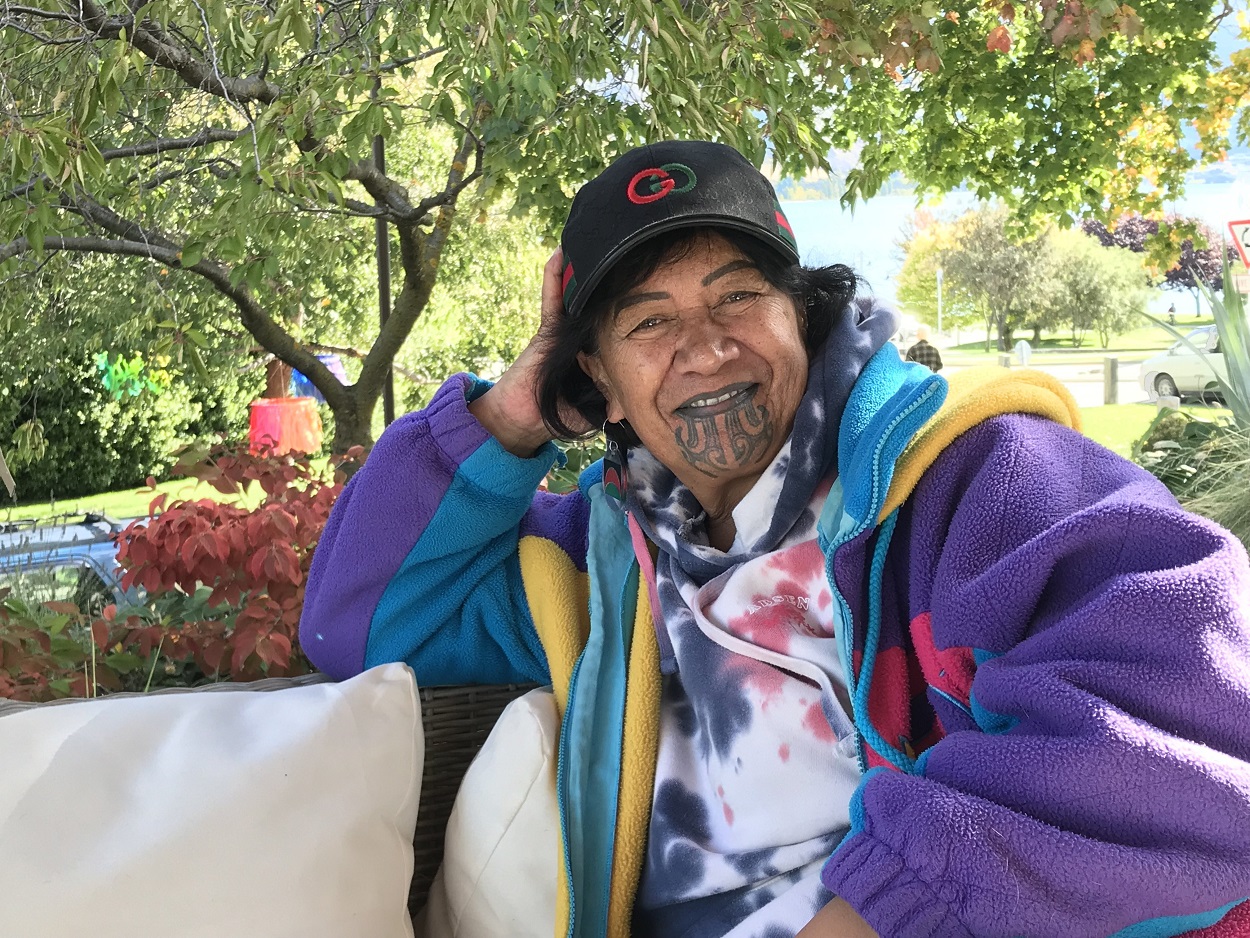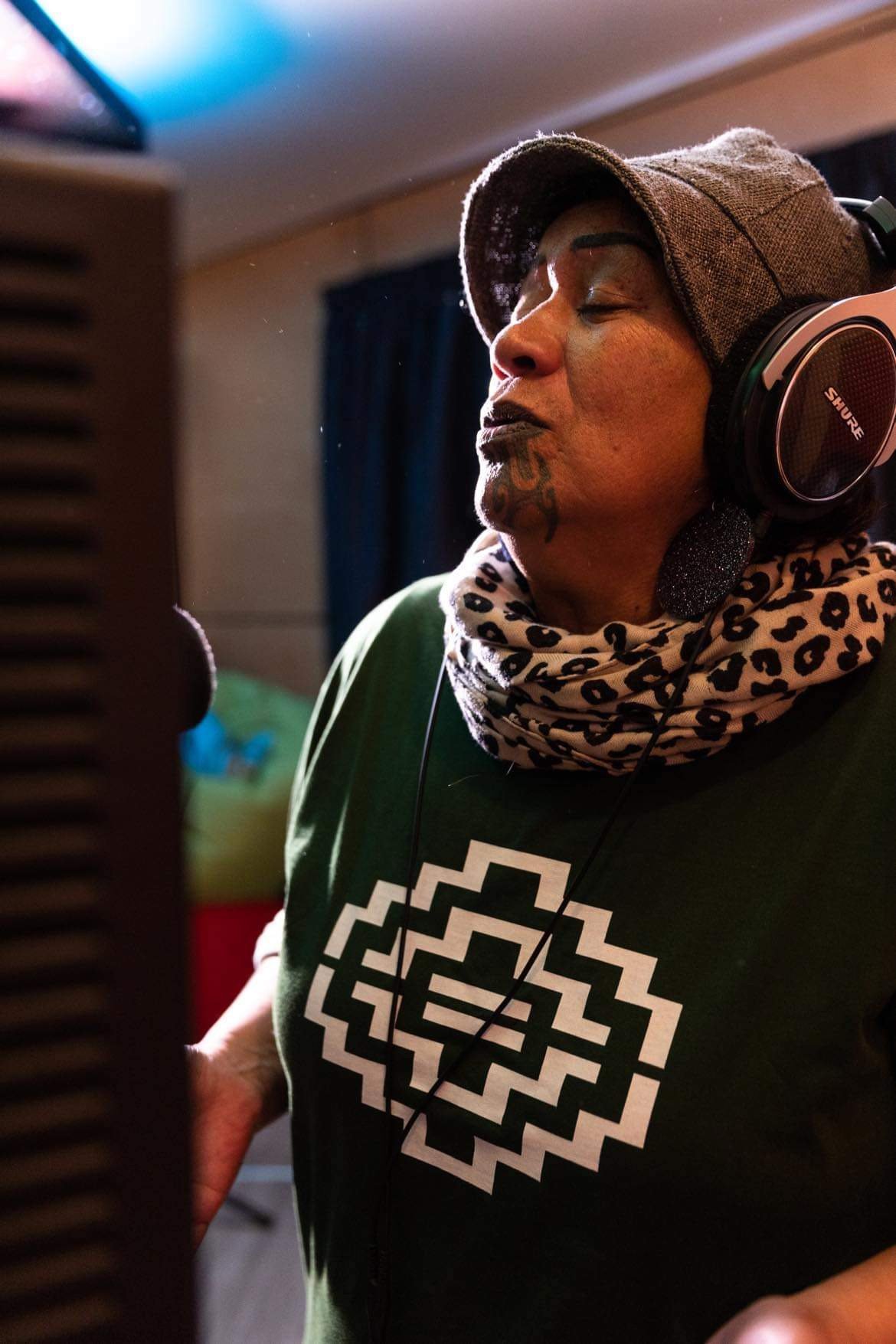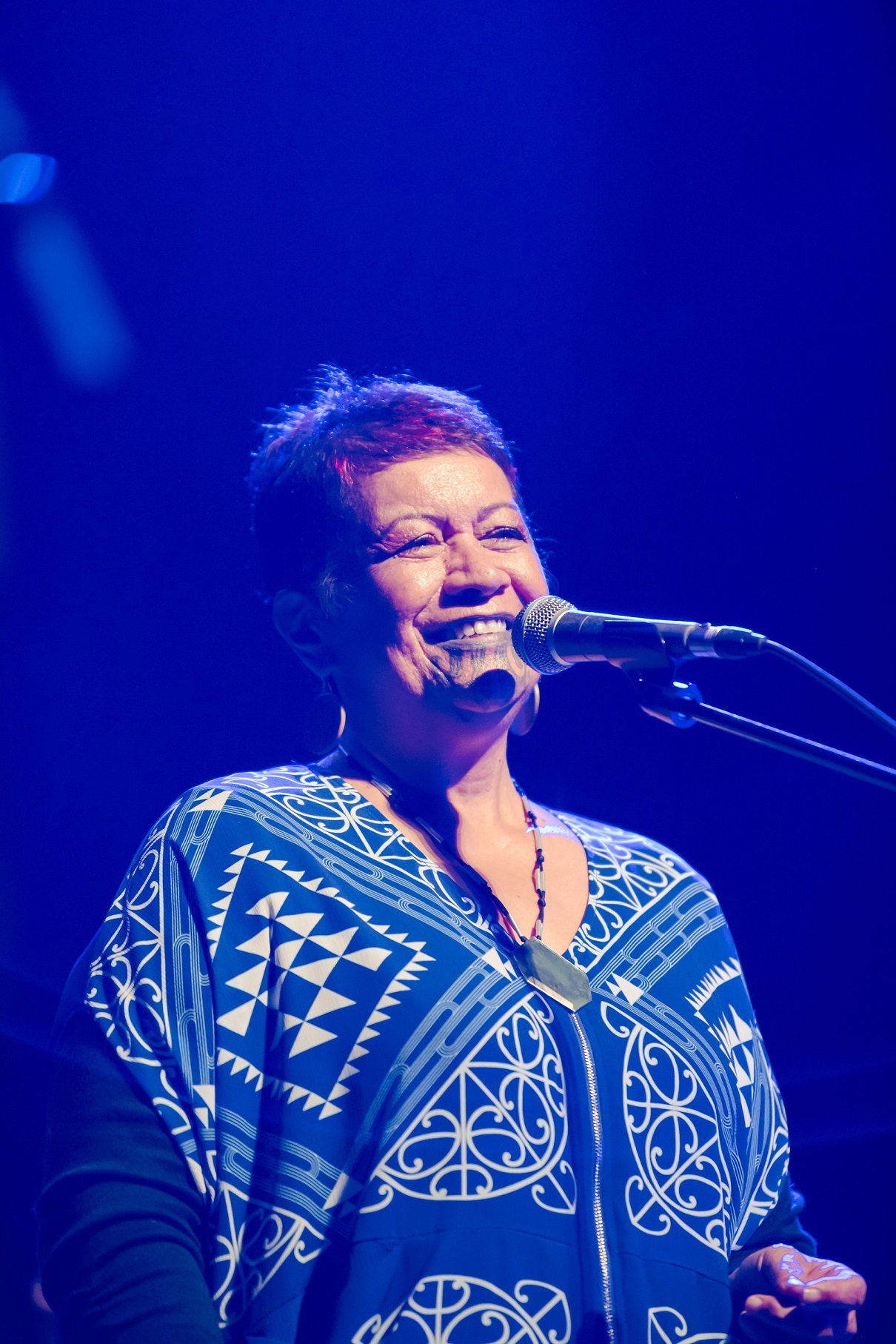
Whirimako Black has walked the walk.
She knows what it is like to be detached from her identity, from her whakapapa and culture.
Black also knows what it is like to reclaim that identity and find her place, if somewhat controversially, in that culture.
The renowned soul singer’s journey began when she returned to New Zealand 35 years ago in the middle of an identity crisis. She had moved to Australia in her late teens to seek fame and fortune as a singer and study music but decided to return home seeking her place in the world.
"I came back to find me as a Māori woman, to find me as a tribal woman, to find my place in my whānau, to find my place in my hapu iwi, to find my place in my community."
Black grew up in the Ruatoki Valley in the Urewera Range in the North Island, with te reo as her first language. The family often sang and wrote songs together both Māori and Pākehā.
"We had a little band in a corner, that was just growing up. No-one took on music industry except moi."
She was driven by wanting to express what she had to say.
"It was important to my mental health that I found away to release songs and find way to identify who I am."
So on her return she wanted to sing the traditional songs of Ngāi Tūhoe and the Mātaatua waka she had grown up with, but with a modern twist, believing they had a wider audience than just the marae, as so many Māori did not live near their marae.
"Some hated it, some couldn’t believe it. It was so new to everyone, but something about it was saying to me ‘do it, girl’. I wanted to reach out to everyone, show how important our traditional songs are."
Yet now after all those struggles academics are saying traditional songs should be shared in all spaces, she says.
"They were unhappy with me but in the end started doing the same thing and apologised for being gatekeepers."
Black believed strongly the songs could evolve without loosing their essence.

She has also championed including taonga taonga puoro in her work including collaboration with Richard Nunns on Te More, using the traditional Māori instruments in a tribute to 1870s composer Mahi-ki-te-kapua.
Her work has received critical acclaim with Shrouded In The Mist winning Best Māori Album at the 2001 NZ Music Awards. She also has a coveted Silver Scroll award in song writing for Best Māori Composition 2004, won a APRA Maioha Award for her songwriting in te reo and the Te Waka Toi Award for her contributions to contemporary Māori music and was made a Member of the New Zealand Order of Merit for services to Māori music in the 2006 New Year Honours.
"I know what I’ve done, I’ve occupied that space and I’m really proud of it. It seems I’m appreciated now for allowing and showing the way to others."
Along with singing in te reo, jazz is Black’s other love. She discovered the genre after a producer suggested she had a good voice for jazz and she could use her te reo with it, as well.
"You have to make a commitment to a genre. You have to live, breath, eat it properly. It takes practice to make it sound natural, and a healthy dialogue with yourself so you are not afraid to do it."
Her work in jazz has also received awards with Best Jazz Album at the New Zealand Music Awards.
Black is also a big fan of collaboration performing and recording with artists from around the world, such as Irish folk musician Donal Lunny, renowned Zimbabwean singer-songwriter Oliver Mtukudzi, and New Zealand’s Dave Dobbyn, Neil Finn, Nathan Haines and the New Zealand Symphony Orchestra.
One of her favourite collaborations is with Salmonella Dub, with whom she has recorded three albums. She loves working with younger musicians and has learnt a lot working with the band.
"We have some fairly awesome conversations, special times. I value that relationship."
In 2008 Black was the featured singer with the NZSO and Salmonella Dub in the "Feel The Seasons Change" show, combining modern music, ancient instruments and te reo.
She has also worked in television, writing the title theme songs for historian James Bellich’s television series The New Zealand Wars, recorded hymns for services in Gallipoli and translated scripts into te reo for children’s television.
Now in her early 60s, Black continues to perform and is on tour with multi-instrumentalist Kim Halliday and taonga puoro player and vocalist Mahina Kaui.
The Arts on Tour show came about after Black called on Halliday to fill in at the last minute on a concert.
"I was so impressed with her, how she picked it up even though we hadn’t played together for 10 years or more, the muscle memory was still there."

"It is us wahine delivering a package of womanness, engaging the audience with songs and kōrero, introducing ourselves not just by name but where we come from."
They did a "warmup" gig in Invercargill with an audience as much Pākehā as Māori. She was pleased to see the mix as often Māori did not "get around to supporting our own" in community gigs.
"We liked the mixture of two audiences so thought ‘sure, why not, let’s keep going’."
Black warns the concerts are not carbon copies of her albums, as there are different musicians performing.
"It has a women’s perspective and take on these songs, they will notice a difference as we will bring all of that and our maturity."
She has become "genealogy crazy" in recent years, taking time to uncover and understand her Pākehā Scottish ancestry.
"It gives you confidence. You don’t question yourself, your ability, whether you’ll be accepted. You can be honest, really bold by understanding how our country came together."
As well as a bachelor of arts degree from the Auckland University of Technology in 1997, she has studied classical piano, guitar theory, attended workshops on mataatua waiata and completed a business management certificate at Te Wānanga o Aotearoa.
Black has also done a diploma in theology wanting to extend her knowledge of the spiritual.
"We are spiritual people. Whether we are Christian or not, we listen to land, feel for it, but if you just developing land, you don’t feel for it, it is just making money."
For her, she hopes her work helps people accept and celebrate who they are as "a mix" not either/or. She wants to show it is possible to break down barriers through arts and music.
"I think I’m quite passionate about mental health. I’ve come through it myself, I feel have tonnes of empathy. I hope what I’ve learnt is to be of great help to whānau — to have fun, be human, laugh at your own silly mistakes. That’s what people need to see."
TO SEE:
Whirimako Black, November 12, The Clarkson Studio, Regent Theatre












